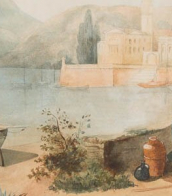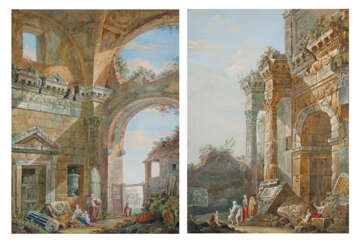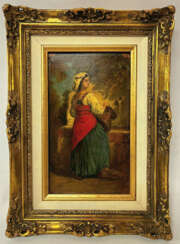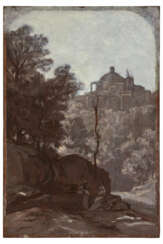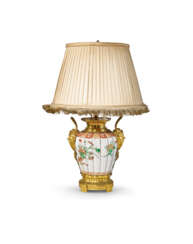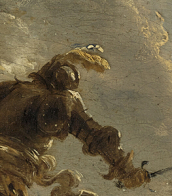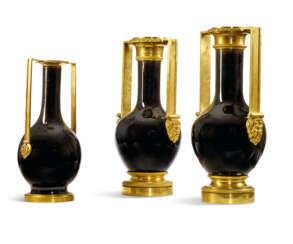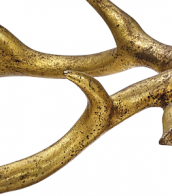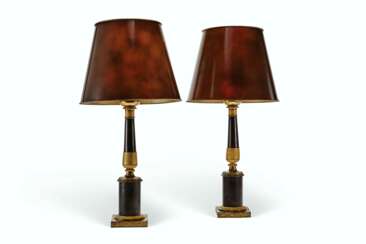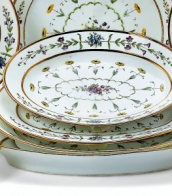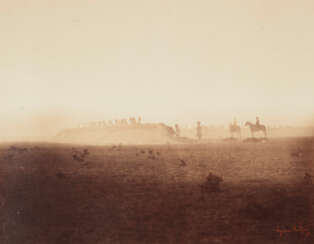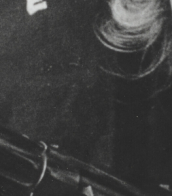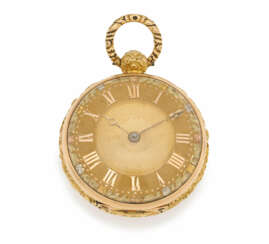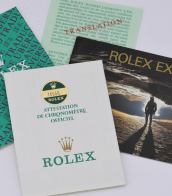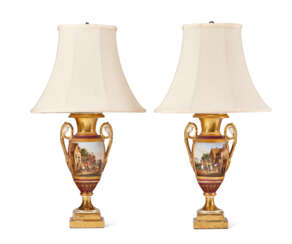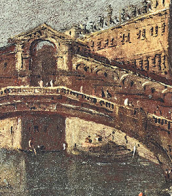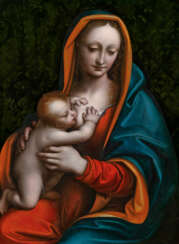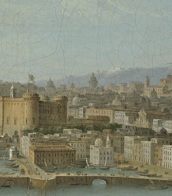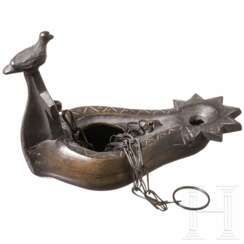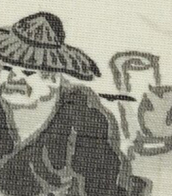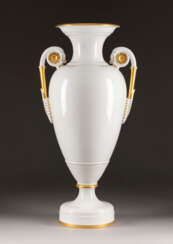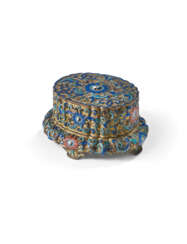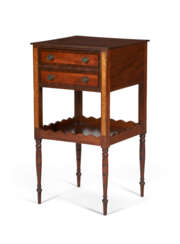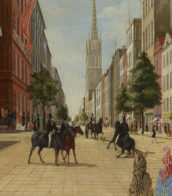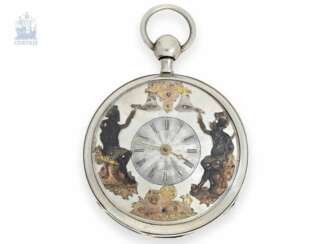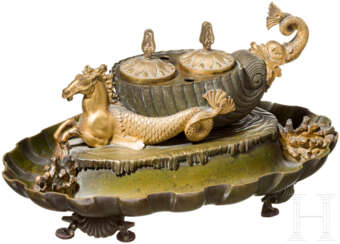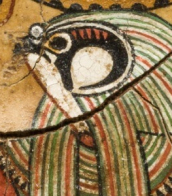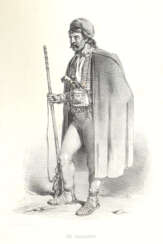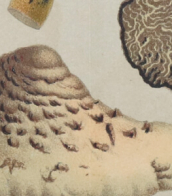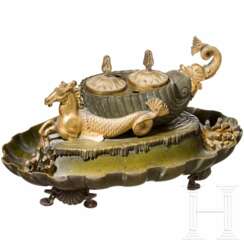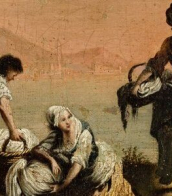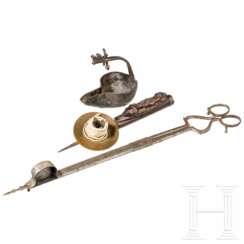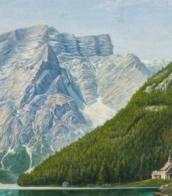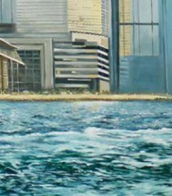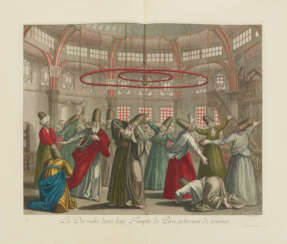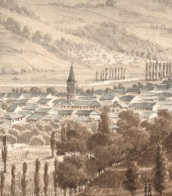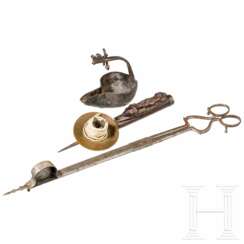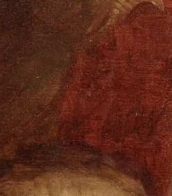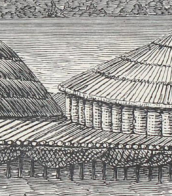1820&amp
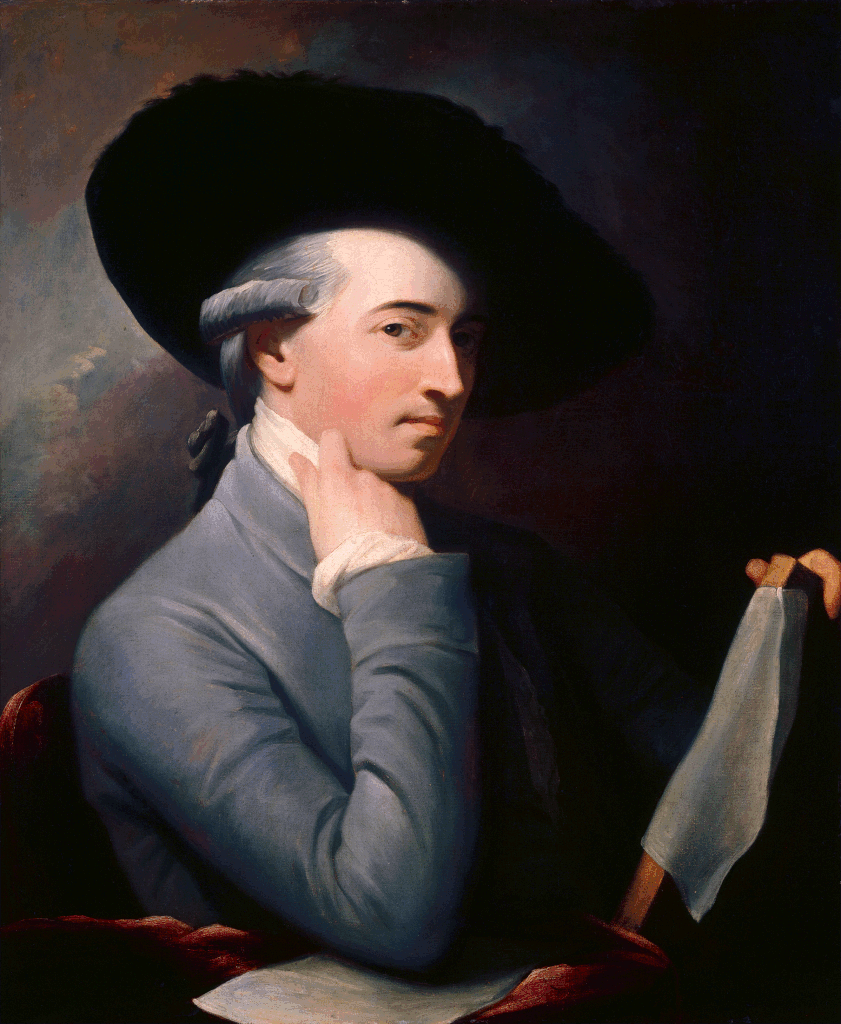
Benjamin West was a British-American artist who painted famous historical scenes such as The Death of Nelson, The Death of General Wolfe, the Treaty of Paris, and Benjamin Franklin Drawing Electricity from the Sky.
Entirely self-taught, West soon gained valuable patronage and toured Europe, eventually settling in London. He impressed King George III and was largely responsible for the launch of the Royal Academy, of which he became the second president (after Sir Joshua Reynolds). He was appointed historical painter to the court and Surveyor of the King's Pictures.

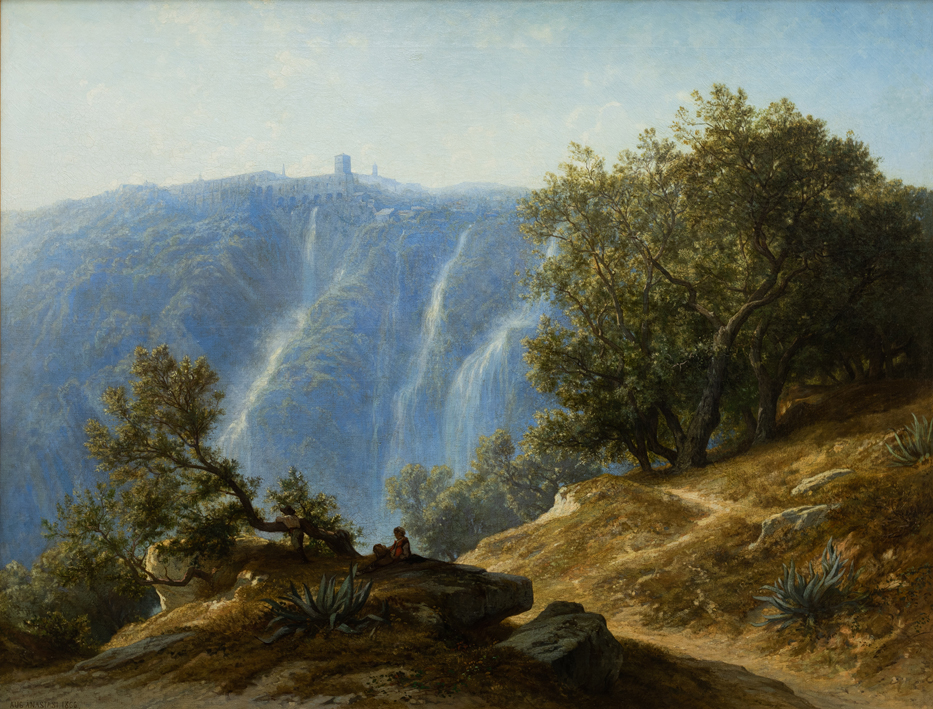
Auguste Anastasi is a French landscape painter of the Barbizon School.
Auguste Anastasi was a student of Paul Delaroche and Jean-Baptiste Corot. He painted landscapes around Paris, Normandy, Holland and Italy, in Rome and especially in Naples, but also in the Tyrol, of which he also made lithographs.
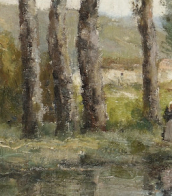
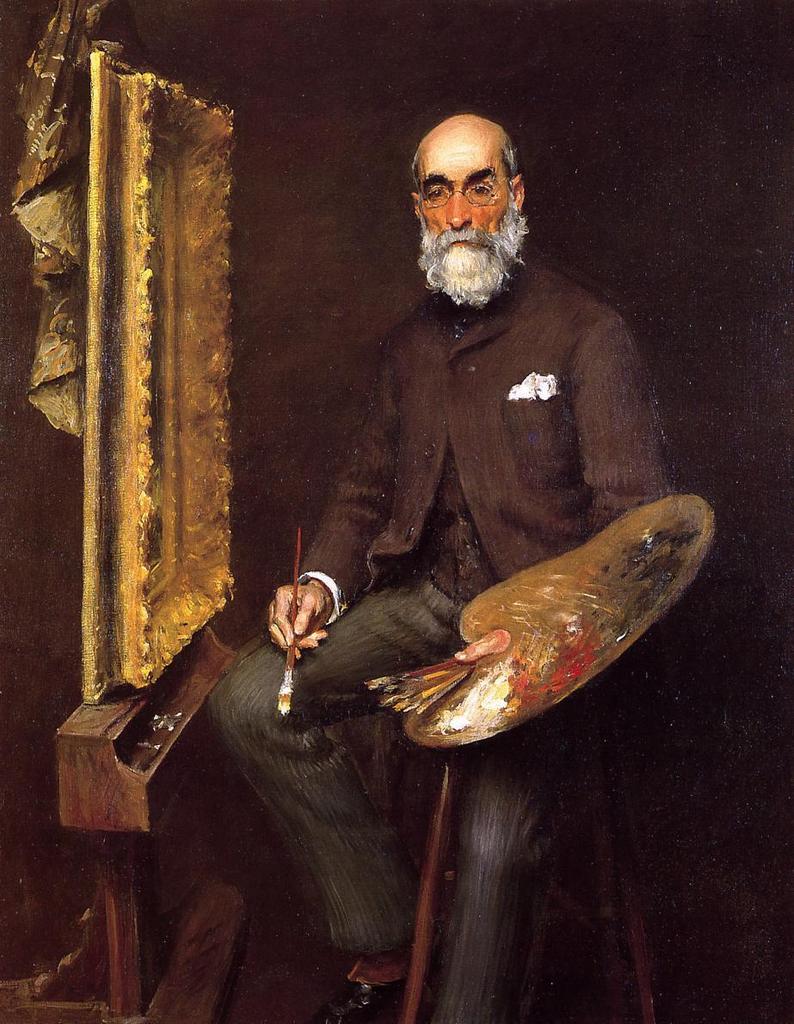
Thomas Worthington Whittredge was an American artist, a prominent figure of the Hudson River School, and is celebrated for his poetic forest scenes and serene landscapes. Born near Springfield, Ohio, Whittredge embarked on a journey that would see him become a household name in American art. His works are known for their depiction of the vastness and silence of the Plains, which he described as having a profound impact on him. He is particularly remembered for his trips to the West, which greatly influenced his art, leading to masterpieces that are treasured for their linear horizons and stark beauty.
Whittredge's legacy is preserved in the collections of esteemed institutions such as the Metropolitan Museum of Art in New York and the Louvre in Paris. His works, like 'The Trout Pool' (1870) and 'The Old Hunting Grounds' (1864), continue to enchant viewers with their tranquility and aesthetic appeal. His life, detailed in his autobiography, reflects a passionate dedication to capturing the essence of the American landscape.
For collectors, auctioneers, and experts in art and antiques, the works of Thomas Worthington Whittredge offer a timeless investment. His paintings are a testament to the Hudson River School's vision and skill, reflecting a deep connection to the American spirit. To stay informed about new product sales and auction events related to Whittredge, sign up for updates and ensure you don't miss the opportunity to own a piece of American art history.
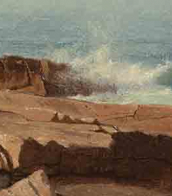
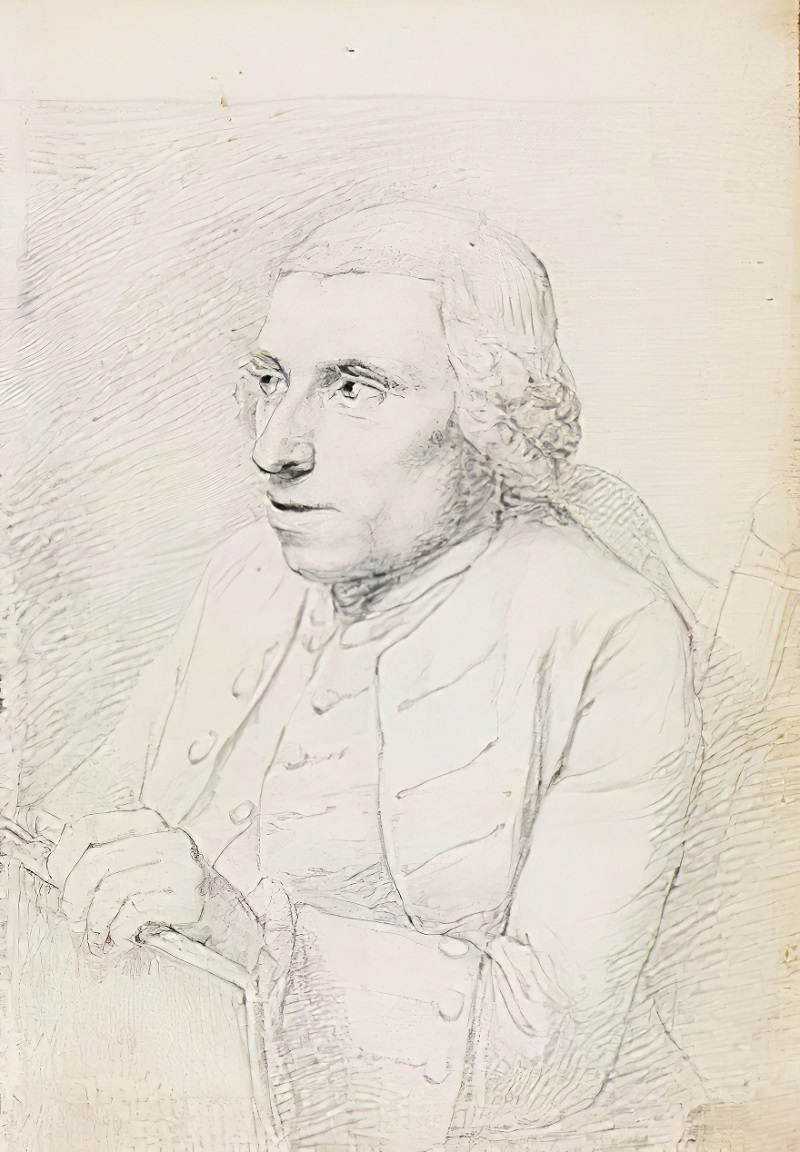
Charles-Louis Clérisseau was a French architect, draughtsman, antiquary, and artist who became a leading authority on ancient Roman architecture and Roman ruins in Italy and France. With his influence extending to Russia, England, and the United States, and clients including Catherine the Great and Thomas Jefferson, Clérisseau played a key role in the genesis of neoclassical architecture during the second half of the 18th century.
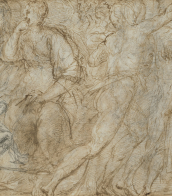

Auguste Anastasi is a French landscape painter of the Barbizon School.
Auguste Anastasi was a student of Paul Delaroche and Jean-Baptiste Corot. He painted landscapes around Paris, Normandy, Holland and Italy, in Rome and especially in Naples, but also in the Tyrol, of which he also made lithographs.
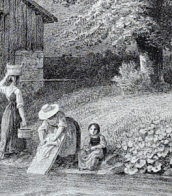

Auguste Anastasi is a French landscape painter of the Barbizon School.
Auguste Anastasi was a student of Paul Delaroche and Jean-Baptiste Corot. He painted landscapes around Paris, Normandy, Holland and Italy, in Rome and especially in Naples, but also in the Tyrol, of which he also made lithographs.
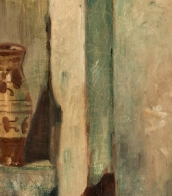
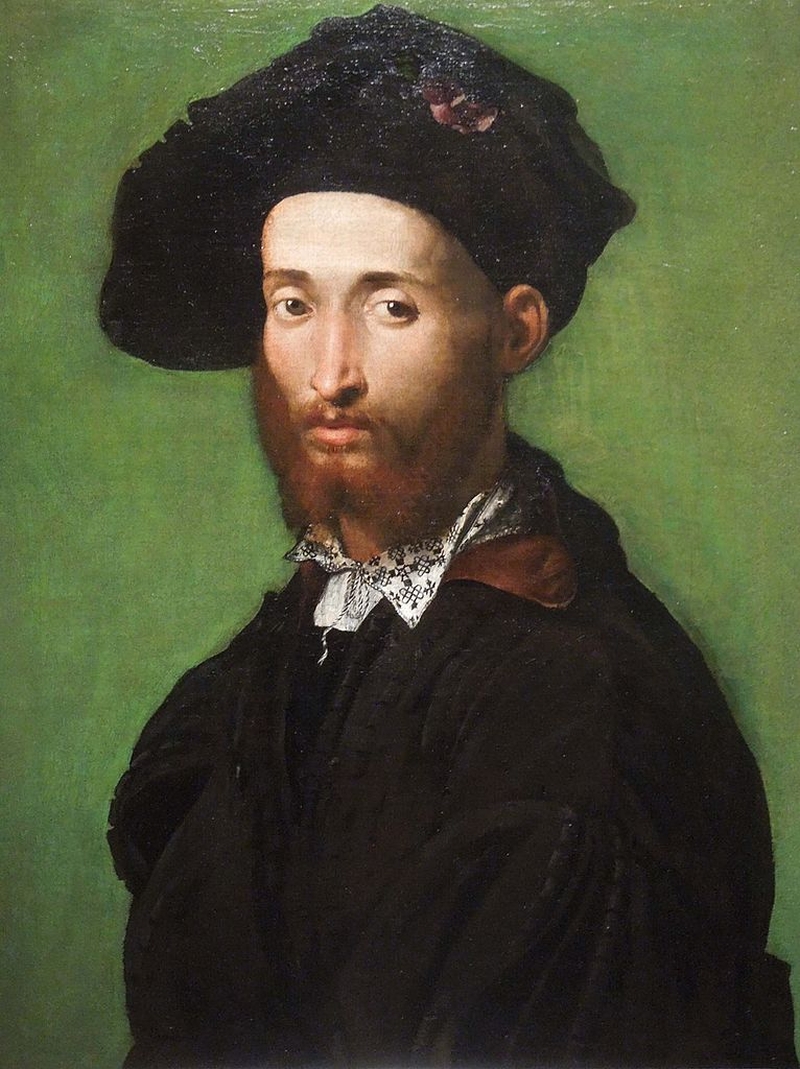
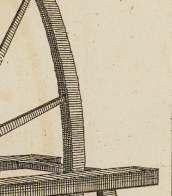
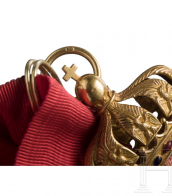
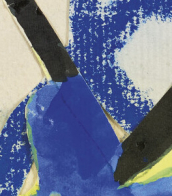
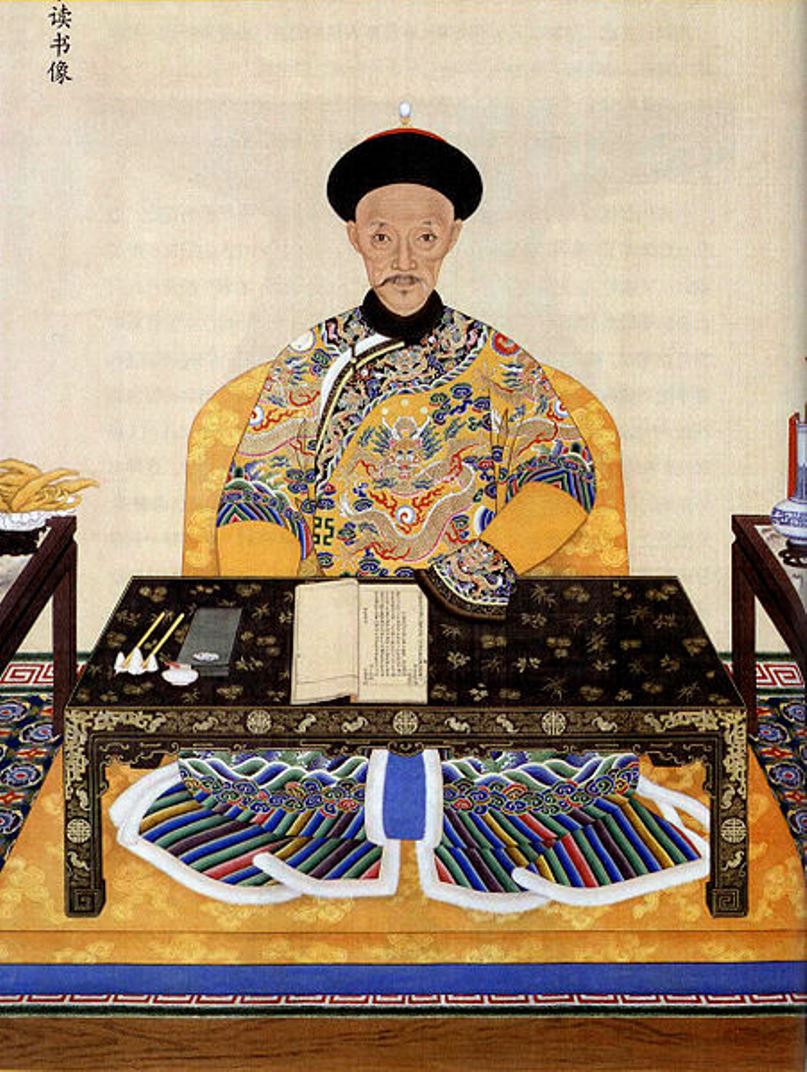
Emperor Daoguang, also known by his temple name Emperor Xuanzong of Qing, born Aixing-Gioro Mianning, was the seventh emperor of the Qing Dynasty and the sixth Qing emperor to rule China from 1820 to 1850.
As emperor and head of the country, Daoguang was weak. His 30-year reign was accompanied by internal and external problems, chief among them the First Opium War and the outbreak of the Taiping Rebellion. The country he led also experienced growing economic tensions, sectarian instability, and active foreign interference, which eventually led to the collapse of the Qing dynasty in 1911.

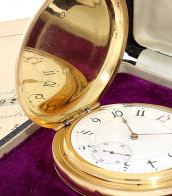


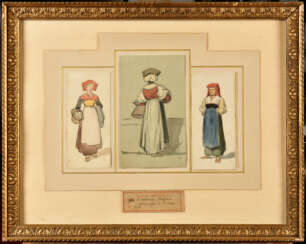

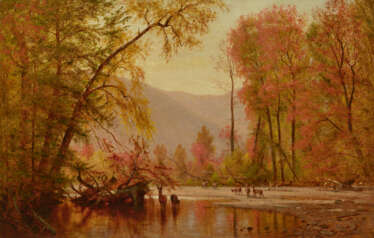



 Zimmermann.jpg)
